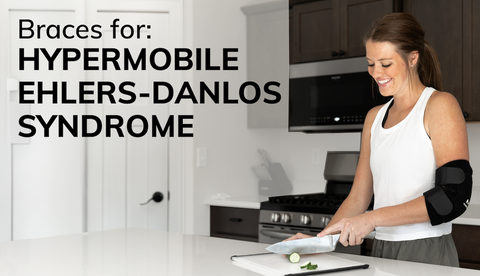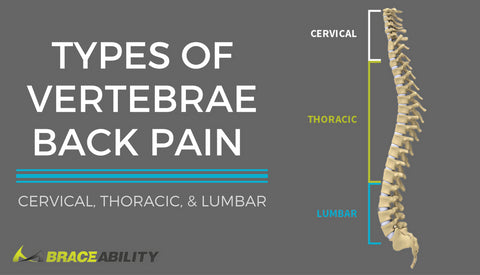Is My Construction Job the Culprit of My Back Pain?
I’m a Construction Worker... Why Am I More Prone to Back Injuries?
Back pain - that dreadful culprit many individuals experience throughout their lifetime. But for construction workers, it’s even common. Construction workers are put at a high risk for experiencing some sort of back injury/pain while working on the job due to their various physical duties. In fact, 30% of construction workers were reported to have missed work due to an injury to the back or spine region.
Why is that? There are many factors that make these individuals prone to back pain such as:
- Lifting heavy objects
- Unequal lifting - bending, twisting, or reaching when carrying heavy objects
- Incorrect posture stance
- Long hours
- Repetitive tasks
- Heavy tool belt weight
The Top Occupations Resulting in Lower Back Pain
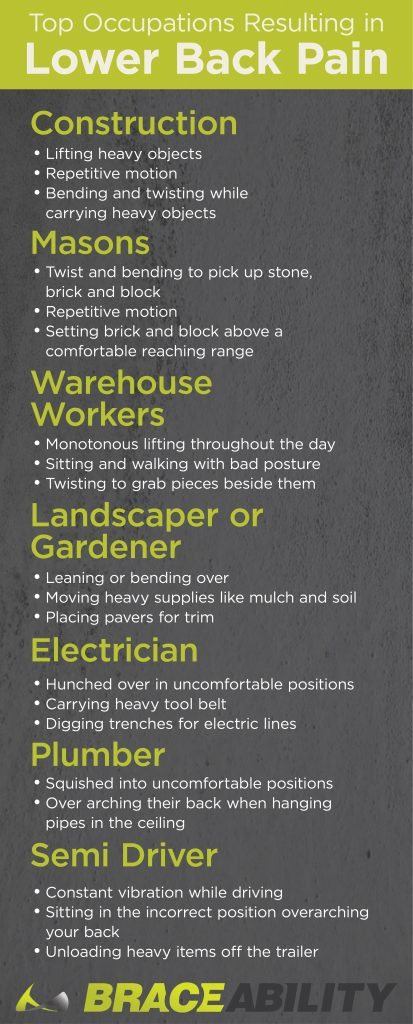
Apart from construction workers, many different occupations result in back pain or injuries.
-
Masonry Back Injury
-
Warehouse Worker Back Injury
Landscaper or Gardener Back Injury
Landscapers/gardeners are constantly leaning or bending over to fulfill their daily tasks. This overtime takes a huge toll on not only the entire back but the lumbar back especially. Aside from bending over, these workers have to transport heavy lawn supplies such as mulch, bricks, sod, and other tools.
Electrician Back Injury
Electricians tend to be sitting or hunched over in an uncomfortable position for most of their day. Apart from these different positions, many electricians carry around heavy tool belts resulting in back fatigue.
Plumber Back Injury
Similar to the uncomfortable positions that many electricians find themselves in, plumbers tend to be even more squished and in tighter places. This turns/twists/bends your back, causing stress and tension to be built up in your spine.
Driver Back Injury
Sitting for a long period of time at a desk causes muscles in your back to tense up but driving a vehicle with constant vibration makes it worse, making drivers prone to stiffness in their backs.
6 Tips to Alleviate Lower Back Pain From Being a Construction Worker, Electrician, Mason, or Plumber
We want to help ensure you’re in the best shape to continue doing what you love - use these 6 simple tips to help prevent injuries at work!
Wear a Construction Back Brace
I'm sure you've heard various things about whether or not wearing a compression brace while working hurts or helps your back. We decided to give this theory a try to see if our lifting brace directly helps those working a construction position. Nino, a construction worker for 7 years has struggled with lower back pain multiple times throughout his life. BraceAbility gave him a sample of our Industrial Work Back Brace to try wearing while on the job. Good news - He spoke with us after using the brace for a few days saying he received tremendous relief while wearing it!
"Your brace not only supported my back but helped force me into lifting with my knees instead of my back," Nino said.
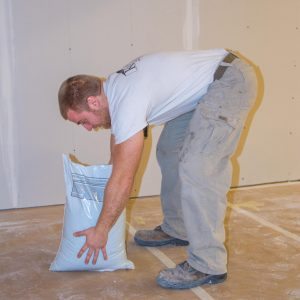
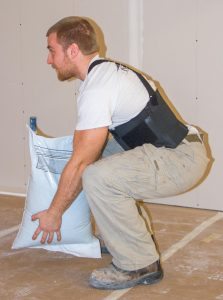
The work brace for construction features removable criss-cross suspenders for additional support when lifting. These straps force your back to lift in the proper position, with your knees bent which is a huge way to prevent back strains, sprains, and pulls. Looking for other similar lifting braces? Try our husky lifting brace or lower back support for heavy lifting.
Stretch Out Those Muscles Before Work
Stretching before work seems to be just one of those suggestions that every job employer says but it will actually help tremendously, especially for occupations requiring physical labor! Stretching helps loosen up the muscles to keep them relaxed and active throughout the day.Cut Down the Weight Loads - Or Get Help From Another Worker
You may be thinking you can lift that 100lb object without a sweat but to your surprise that may quickly lead directly to a muscle spasm or pull in your back. It’s a better idea to carry lighter loads or take fewer trips. In addition, if you have to carry an extremely heavy item, ask another coworker to help - you won’t regret it!Use Proper Lifting Techniques
If you’re a construction worker, electrician, etc. I’m sure you’ve heard “lift with your legs, not your back!” too many times to count. Using proper lifting form will prevent both short term and long term injuries that could take weeks to heal, keeping your home from your job.Take Short Breaks - Know Your Limits!
It’s okay to take a break when you’ve exhausted yourself. Even taking five minute breaks every so often can help give your muscles the rest they need.
Take Care of Yourself After Hours
The last thing you want to do after a long, hard day at work is to take the time to ice or massage your muscles but this is a great way to reduce your injury from progressing. Try our lower back pain wrap featuring inserts for both cold and hot pockets to easily apply both therapies!









